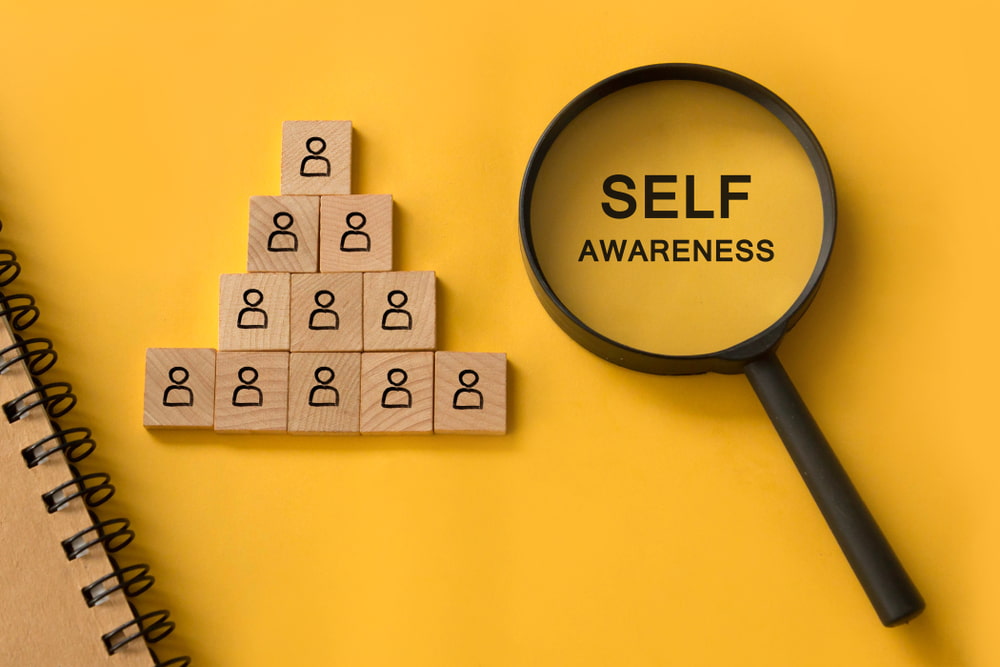There’s no shame in experiencing shame. This is the first thing to tell yourself if you’re constantly struggling with this feeling in your relationship. And that’s a good start. It’s invigorating and motivating to know that you’re not guilty for feeling a certain way.
Self-affirmation is a healthy relationship activity used in different emotional workshops for one simple reason – it works and it helps you feel better and find the strength to deal with the issues.
There will come a time when you’ll have to tackle your shame head on – and that can be tough. However, if not addressed, shame will only continue causing problems in your relationship, preventing you from experiencing the happiness you deserve. You have to start somewhere, and it’s usually best to start at the beginning.
What Is Shame In A Relationship?

It’s easy to define shame, at least in general terms. Shame is a feeling of humiliation, embarrassment, unease, discomfort, or indignity. It stems from a perception of you doing something improper, immoral, dishonorable, or unsuitable. However, this is shame on face value, in its most basic, common, and recognizable form.
Continual shame in your relationship is another matter entirely. Who hasn’t felt shame at one point in their lives? We’ve all done something at one time or another that left us feeling ashamed of our actions. And that probably didn’t feel good. Not at all. Now imagine having to deal with such feelings day in, day out in your relationship.
This prolonged feeling of shame can easily find its way into every aspect of your life and your relationship, becoming toxic, causing individual and shared problems. It can become an internalized critique of your very personality and essence, leading you to develop extremely negative emotions about yourself, feeling inadequate, worthless, or a bad person.
And feeling constantly ashamed will distort your sense of self-worth and transform your own self-image into a disfigured reflection that’s far from the truth. This vicious cycle can cause you to experience shame for even the most normal, everyday actions, smudging the lines between right and wrong, placing you at a persistently negative place in your life.
What Are The Signs That You’re Experiencing Shame?
The process of dealing with your constant feeling of shame is difficult. Shame brings negative emotions that in turn bring more shame and negative feelings you can’t seem to shake. The longer this continues, the more difficult it is to break free and learn to love yourself and your actions, thoughts, and feelings again.
The first and the most important thing you need to understand is that you don’t need to be ashamed of your shame. You don’t need to be ashamed of everything you do. You’re hurting yourself, and you don’t deserve to feel the hurt, the pain, and the negativity. You’re a human being that needs and deserves love, respect, and warmth.
Knowing this can help you become more open with yourself and give you the strength to try and recognize the signs of your shame. Knowing that you’re in the vicious cycle of shame is the first step in overcoming it. The usual signs of shame in your relationship are:

- Feeling sensitive and unappreciated
- Experiencing worry about what your partner thinks about you
- Choosing not to share your feelings and thoughts with your partner for fear of embarrassment
- Fearing that you’ll look stupid, inappropriate, and wrong in front of your partner
- Harboring feelings of suspicion toward your partner
- Feeling unable to trust yourself in your relationship
- Starting to lose your identity in your relationship
- Not wanting to be your true self in with your partner
- Feeling dishonorable and inadequate without doing anything wrong
What Are The Negative Effects Of Untreated Shame?
Dealing with and overcoming your shame and overcoming can be extremely difficult. Knowing your true self and helping yourself is not easy. However, leaving your feelings of consistent shame untreated can lead to other emotional problems:
Isolation
Strongly believing in a negative perception of yourself that stems from constant shame can easily lead to withdrawal from others, as well as love avoidant behavior. You may very well be feeling unworthy of intimacy, friendship, or love, as well as anxious about others seeing the wrong perception of your true self you’re falsely harboring.
Distress
Self-shame is also an incredibly strong catalyst for emotional distress and many negative thoughts. As they multiply, you become more self-aware in all the wrong ways that end up being even more harmful to you and your feeling of self-worth. Constantly feeding yourself negative talk that stems from your feelings of shame can cause:
- Anger
- Self-loathing
- Fear
- Worry
- Embarrassment
- Sadness
Relationship
Not feeling good about yourself means it’s unlikely to feel good about your relationship and your partner. The longer the shame persists, the more difficult it becomes to open up to your partner, be yourself with them, and enjoy the loving and relaxing feelings that healthy relationships nurture.
This strongly undermines even the healthiest of relationships, causing you to express irritability, denial, annoyance, and different types of confrontational behavior. What’s more, the feeling of shame can even cause you to express unwanted physical manifestations of your feelings, including forcing a smile, keeping your head down, blushing, and avoiding eye contact.
From there, it’s easy for additional relationship problems to arise, such as perpetual disagreements, lack of intimacy, and increasingly poor communication. All these problems that stem from the persistence of shame continue to cause further issues, leading to your relationship becoming a battlefield instead of a field of roses.
How Can I Deal With Shame In My Relationship?

Recognizing your shame and learning the importance of dealing with it is only the beginning. Actually addressing it is what comes next. Shame may be difficult to overcome and it tends to only get worse over time, so there’s no better time to start than now. An experienced and understanding relationship advocate can certainly help you.
However, there’s also something you can do to try and help yourself:
- Try to pay attention to your positive feelings while also understanding your negative emotions and how they’re affecting you, your life, and your relationship.
- Be patient with yourself, acknowledge your rights besides only your wrongs, and learn to forgive yourself.
- Allow your partner to provide support and try not to hide your feelings and tough spots from your partner. Treat them in the same way you would like them to treat you.
- Admit your shame, admit your feelings that stem from it, and talk about it with yourself and your partner. Acknowledge everything and try to move past it.
- Be truthful about everything to both yourself and your partner. Try to avoid defensive behavior and be honest and open with your partner. Sharing helps overcome shame.
- Accept yourself the way you accept your partner. Stop being harsh on yourself and try to realize you’re not at constant fault.
PIVOT’s Healthy Relationship Workshop Activities Will Help Resolve Your Shame And Stop Love Avoidance
There’s no reason to be ashamed of feeling shame. Nor is there a reason to feel guilt, unease, or any other negative emotion that can dissolve your inner strength and cause you to begin losing sight of yourself in your relationship. Unfortunately, far too many people end up in a vicious cycle of feeling ashamed of the shame they’re experiencing.
And that’s the main problem and the primary reason to try and resolve your issues with self-shame in your relationship. Leaving your shame and the reasons behind it untreated can lead you to embrace various defense mechanisms that can hamper both your relationship and your emotional development. And that can be only the beginning of it all. That is where PIVOT can help you. We’re here for you even when you’re not there for yourself. We’ll help you overcome your shame by identifying and resolving the reasons behind it and help you deal with the guilt you might feel. Our individual workshops can teach you how to appreciate yourself, and our couples retreat helps you reconnect with your partner. Call us today!


















